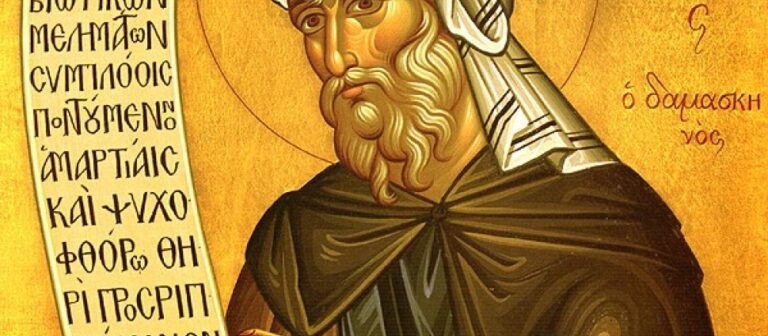
If I Could Preach Only One Sermon: Luke 18
If I could preach only one sermon, I would preach my one allotted message to the visible church.
I would preach with the weighty concern that the baptized are on an irreversible course toward eternity. And the baptized, those well-ordered around the outward expressions of the covenant, are most likely to be the ones who “trust in themselves that they are righteous and treat others with contempt” (Lk. 18:9).
Why are the baptized prone to trusting in themselves? If I may borrow from Paul’s style and cadence in Romans 9, it is because the baptized have the church, the Word, the sacraments, the church officers. The baptized have the confessions, the catechisms, the hymns, the psalms, the Sunday Schools and the Christian publishers. They have the necessary outward things, but do they have the righteousness obtained only by faith? (Rom. 9:30)
By preaching on the Pharisee and the tax-collector (Luke 18:9-14), I might then, with the blessing of the Holy Spirit, dislodge those within the baptized church who are currently wedged under the heavy millstone of their own righteousness.
The passage begins with Jesus revealing his own zeal to save those elect souls in the visible church still dedicated to their own righteousness.
The passage divides nicely in two parts as God examines the hearts of two men. The first, the Pharisee, is covered with superficial virtues. He shines. He is mesmerized with himself. The second man abhors himself. He dwells in shadow. A tax-collector, covered with vice. Not superficial vices. Real, deep, on the inside vices. And his smoldering sins are choking him in the presence of the living God.
The parable is a great help in exposing the self-righteousness the baptized might take shelter behind. The Pharisee is an addict of self-righteousness. He is the productive fool described by Lewis in The Screwtape Letters: “To be greatly and effectively wicked a man needs some virtue.”
The reeking virtue of this Pharisee is his gratitude. He is thankful he is not like other men. He has so polished his virtues he has blinded himself. He thinks he is blessed of God, when he is cursed. Cursed because he refuses to take shelter in the alien righteousness of Christ. His own virtues are his shelter. The good he has done. The bad he has avoided. His own works shine in his heart, not the light of the gospel of the glory of Jesus Christ. He does not commend the Savior. He commends virtue.
To make the preaching of this text more effective, I would urge the baptized to see how the Pharisee’s love of his own righteousness is revealed in his contempt for other people. The two go hand-in-hand. Where there is smoke, a contempt for others, there is fire, a trust in my own righteousness.
Do contemptuous and sneering speeches about the sin of others fill your marriage conversation, your home talk, your private thinking? If so, it is a revelation to you of how you think of yourself before God. You think you are acceptable to God because you are better than other men. You now need to keep reminding yourself how better you are than others. Your self-righteousness now depends upon it. You won’t be able to pray for those you hold in contempt. You won’t wish them to be blessed by God to escape the sins and foolishness you think you have escaped by your own wits and wisdom.
The self-righteous spirit seeks to establish commerce with God, where a good done or a bad avoided moves God to accept us favorably. It is an old evil. It is asking God to boast in the works of sinful man. We never draw God’s favor by pointing to something within ourselves. God is only favorable toward sinners like us when we desire something within God. Divine mercy.
That is why there is another man in this parable. This other man despairs of himself yet gains the full and chief blessing of God. He goes home justified! He goes home fully accepted. Right with God. Not condemned. The tax man obtains what the Pharisee thought he had. Why? Because his hope before God was exclusively found within God. God’s own mercy.
A sure sign you are trusting God for your righteousness is not that you have been baptized. The sure sign is that you believe yourself unworthy to approach God. Unworthy outside of Christ.
The tax-collector stands far off. He is not worthy. He does not lift his eyes. He is not worthy. He beats his breast. He is not worthy. He throws the book at himself. The book of God’s law. He is not worthy.
But he will not be crushed under judgment. This wretched sinner rises. He rises upon the mercy of God in Christ crucified, where all sin is atoned, the sin of self-righteousness and the sin theft. All sin. There is plentiful mercy for it all.
The wretched man goes home to go on walking in the newness of life, the holiness of the new creation. This is what your baptism was always about. A summons to come and claim your mercies from Christ.
John Hartley has been pastor of Apple Valley Presbyterian Church since 2010, having previously been a pastor for 10 years in Vermont. He is a Wisconsin native and a graduate of University of Wisconsin-Milwaukee as well as Dallas Theological Seminary. John lives with his wife Jen and their five children.
























